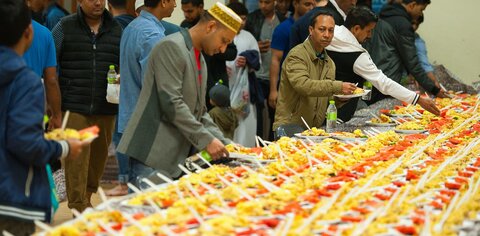Hawzah News Agency - You’ve only got to consider the many names used to refer to Islam’s holiest month to see quite how diverse – and divided – the Islamic world can be. If you come from Saudi Arabia you are likely to refer to it as Ramadan. But equally people from India call it Ramazan. My parents, who hail from Sialkot in Punjabi Pakistan taught me to call the month Rozay.
There’s been an increased focus on Ramadan in 2020 as mosques have been shut down thanks to the COVID-19 pandemic. This means that the month-long daytime fast experience has moved from being something institutionalised to an individual thing. For non-Muslims it’s a chance to see Islam less as a monolith and more as a diverse collection of people who are Muslims.
The fasting month is one of the central tenets of Islam – it is the holiest month in the Islamic calendar. It is a full month when the faithful are expected to fast from dawn till dusk, abstaining from food and drink. It is an act of worship that the divine scripture, the Qur’an, prescribes as an experience to draw closer to God.
It’s a month when Muslims give abundantly and mosques are bustling – it’s seen as a refresher month for Muslims to keep up their regular prayers and do more in solitary or in congregation, including the extra congregational nightly prayers known as tarawih.
This year is very different, however – Muslims throughout the world are fasting in confinement as the coronavirus has altered the rhythm of the sacred month. These intense debates began when many governments took the difficult decision to close public spaces, including mosques, and have included discussions on the permissibility of Friday congregational prayers to be conducted online.

